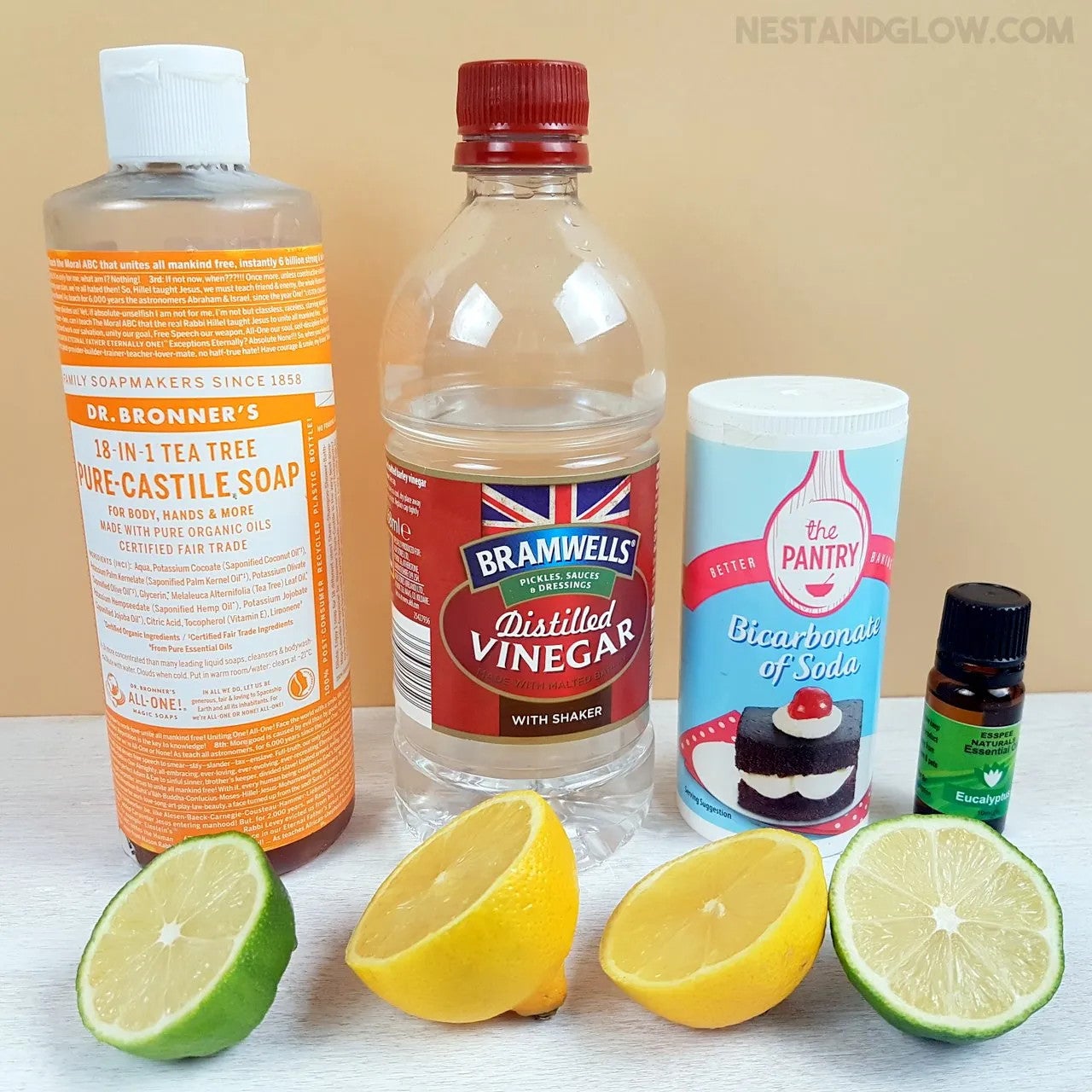Green Spring Cleaning
There are several brands out there that offer environmentally friendly cleaning formulas and sprays. These help the environment but are also better for the health of you and anyone in the space you’re cleaning. Some of the most effective and cheapest of these products are actually some you can easily make yourself!

All-purpose cleaner
My go-to cleaner for most tasks around the house is a simple 1:1 ratio of white vinegar and water. If you’re not a fan of the vinegar smell, I recommend soaking citrus peels in the solution for at least 8 hours before using it. You can keep these peels in the bottle when you refill it and they will infuse your cleaner with a citrusy scent for months! This cleaner can be used on both kitchen and bathroom countertops, on stoves, in bathtubs, and on pretty much anything. I keep several bottles around my home.
Glass cleaner
There are several different recipes out there for effective glass cleaners, but they all have one thing in common: isopropyl alcohol (a.k.a. rubbing alcohol). For convenience, I usually just add 3-4 tablespoons to my all-purpose cleaner solution above to make my glass cleaner, but if you want to stretch out your vinegar, you can go as low as a 3:1 water-to-vinegar ratio with the alcohol added in and still get that glass clean.
Carpet
Carpet is another case where I use my all-purpose cleaner. I spray stains and let them sit for a bit before using a towel to soak up the mixture. For stubborn stains, I still soak them but scrub them with a little bit of castile soap (like Dr. Bronner’s). With all carpet and upholstery cleaners, make sure to test them on an inconspicuous spot for staining.
To refresh and deodorize carpets, I simply add 20 drops of essential oil to 1/2 cup of baking soda, sprinkle it on the carpet to let it sit for at least 30 minutes, and then vacuum. If you have pets, make sure to keep them off the carpet until you vacuum and research which essential oils are safe (it varies by animal).
Scrubbing
For tasks like cleaning ovens, stove burners, and scrubbing out bathtubs I use a paste made from water and baking soda. I don’t have exact measurements or ratios for this one, just add enough water to make a thick paste. I’m not sure if it actually makes a huge difference, but I tend to make my paste thicker for tougher projects like when something gets burnt onto my stovetop. After scrubbing with a sponge or cloth, just use a clean, wet cloth to wipe the paste away. Sometimes I will spray my all-purpose cleaner in the bathtub before washing the scrub away, but that’s more for the satisfying foam reaction than anything else.
DIY Goo-Gone
For residual stickiness, make a paste similar to the scrubbing paste, but substitute whatever oil you tend to cook with in place of the water. Then you can use this paste to gently rub away thinks like the sticky residue from jar labels you plan to reuse.
If you want to buy instead…
While I recommend trying a few of these before giving up and spending more on a pre-made product, I also know that not everyone has the time, ingredients, or patience to try these out. There are also cases where you may need to clean something that there just isn’t an effective DIY out there for. Two options I like to use are Meliora and Blueland. Both use natural ingredients that won’t be harmful to you or your family and both use the refill model where they will send you a spray bottle in an initial “kit” and you keep the bottle and only purchase the concentrated version of the product to mix with water. This not only keeps those spray bottles out of our landfills, but since the concentrated version (often a small tablet) is much lighter, these products use less fuel to ship.
Do you have any other DIY recipes for cleaning or other brands you like to use? Let us know!